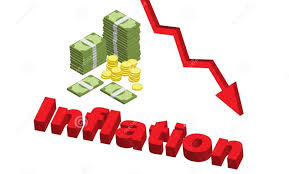
AS the festive season approaches, the question of whether Zimbabwe’s baking industry can reliably meet the demand for bread — a national staple — is paramount. With concerns about price stability and supply shortages often surfacing during peak periods, the sector’s capacity is under a microscope. To explore the readiness of bakers and the policy landscape needed for their stability, our assistant editor Mthandazo Nyoni (MN) spoke with Elvis Ncube (EN), president of the National Bakers Association of Zimbabwe (NBAZ). They discussed the challenges of power cuts, high costs, and unfair competition, as well as the critical interventions needed in the 2026 national budget. Below are excerpts from their conversation:
MN: With the festive season approaching, does the industry have the current capacity, in terms of both raw material supply and functional machinery, to reliably meet the anticipated surge in bread demand without significant price hikes or shortages?
EN: The industry has the capacity in terms of raw materials and functional machinery to meet the demand for the festive season as long as the supply of raw materials remains consistent. During the busy period, you always have opportunists who create artificial shortages and as a result of arbitrage, you will find bread being sold at more than the recommended retail price, mainly in the rural areas. However, from the bakers stand point, no price hikes are anticipated.
MN: Looking ahead to the 2026 national budget, what specific policy interventions or fiscal measures is the NBAZ lobbying for to create a more stable and predictable operating environment for bakers?
EN: We request that Value-Added Tax (VAT) classification be changed from the current tax exempt to Zero-rated VAT so that bakeries can claim input costs. We also advocate for reduction of Intermediated Money Transfer Tax from 2% to 1%. Companies that are net-metering or installing solar should be considered VAT exempt as what happens in other countries. Some incentives are required since this measure will go a long way in alleviating high demand for electricity. Bakery production equipment being imported by bakeries with the intention of increasing production capacity should be VAT exempt since we are producing a basic commodity that is currently VAT exempt. The increase in Corporate Tax from 24% to 25% and the VAT increase from 14,5% to 15% at the beginning of the year 2024 have created challenges in funding our working capital requirements. We appeal that Corporate Tax and VAT be reviewed.
MN: If you could present a three-point plan to the ministry of Finance for the 2026 budget, focused solely on reviving the baking sector, what would those three critical points be?
EN: Cut or waive VAT on baking fats, yeast, packaging and other baking ingredients, including labour. Reduction of fuel prices for bakers such that we reduce on both production and distribution costs. We would appreciate if all raw materials, inclusive of labour, remain consistent which will enable the price of bread to also remain consistent as well. Low-interest credit line for both big plant and small to medium enterprise bakeries. Set up a ZiG/USD funded facility with an interest of 5% to 7% per annum for equipment and machinery upgrades. Continue supporting local farmers that are producing wheat such that the country is self-sustaining. We can then export wheat in exchange of the hard wheat required for greasing purposes. Further ensure costs of wheat production are reduced such that local wheat becomes cheaper compared to imports. Flour accounts for approximately 43% of the production costs. Reduction in flour prices will go a long way in ensuring bread price stability.
MN: To what extent is the industry currently reliant on imported wheat, and what specific measures or incentives would you like the 2026 budget to include to boost local wheat production and strengthen the entire value chain from farm to bakery?
- Severe power outages loom: Zesa
- ‘Power cuts choke mines, industry’
- South Africa's Eskom ramps up power cuts as plants break down
- ‘Power crisis could cost Zanu PF’
Keep Reading
EN: The bakery industry cannot answer questions related to wheat importation or production since we have a specific industry and the Grain Millers Association of Zimbabwe that deal with that. We feel that these will be the right people to answer the above question adequately. However, cabinet approved a greasing ratio of 30% imported hard wheat and 70% local wheat.
MN: What are the major challenges affecting the baking industry in Zimbabwe?
EN: High operational costs. The Zesa Holdings (Zesa) seems to be a back-up plan due to frequent power cuts and load shedding. Bakeries are running on generators which is an additional cost in terms of fuel. Lack of proper road infrastructure, especially in rural areas during the rainy season, resulting in additional distribution costs. Competition from informal unlicensed individuals that are producing confect and bread in their homes. Their products become cheaper as they do not pay taxes and other statutory costs. Access to cheap funding for working capital and retooling. Current cost of funding is steep ranging from 17,5% and above per annum.
MN: Could you provide an estimate of the industry’s current average capacity utilisation? What were the primary factors that prevented this figure from being higher over the past year?
EN: Power outages and breakdowns. Some small players are now resorting to baking at night only because that’s when electricity from will be available. Running a bakery is both capital and labour intensive which makes it difficult to increase capacity. Affordable funding is required to ensure increased production capacity. The estimated daily production figure is 1 712 481 loaves per day, which is 86% capacity utilisation.
MN: Many bakeries are operating with aging and inefficient equipment. Can you quantify the industry’s total estimated investment need for critical retooling and modernisation to improve efficiency and reduce production costs?
EN: Estimated cost for an SME baker is US$50 000. Estimated cost for running a non-automated full line that can produce 100 000 loaves is plus or minus US$5 million.
MN: Beyond the general challenges of power cuts, how significantly has the need to rely on expensive alternative energy sources, such as diesel generators, impacted your production costs and the final price of a loaf of bread?
EN: Alternative sources are quite expensive because generators are run for more than eight hours a day. The cost of running generators is three times more the cost of grid power and as a result, running generators increase production costs. Even when power is available the power is not clean due to inconsistent voltage levels and this has a detrimental impact on equipment and this causes huge breakdowns. Bakeries have to invest money into voltage regulators which are quite expensive.
MN: In the face of these cumulative challenges, are you seeing a trend of smaller bakeries closing down or being acquired by larger players? What does this mean for the long-term structure and health of the baking industry in Zimbabwe?
EN: We have seen that individuals are opening their bakeries at home which are run informally and this creates an uneven playing field as these home industries do not pay taxes and other operational costs that are statutorily-governed. All formal bakeries are affected by such challenges and definitely small bakeries will close and the bigger ones will struggle to survive.











